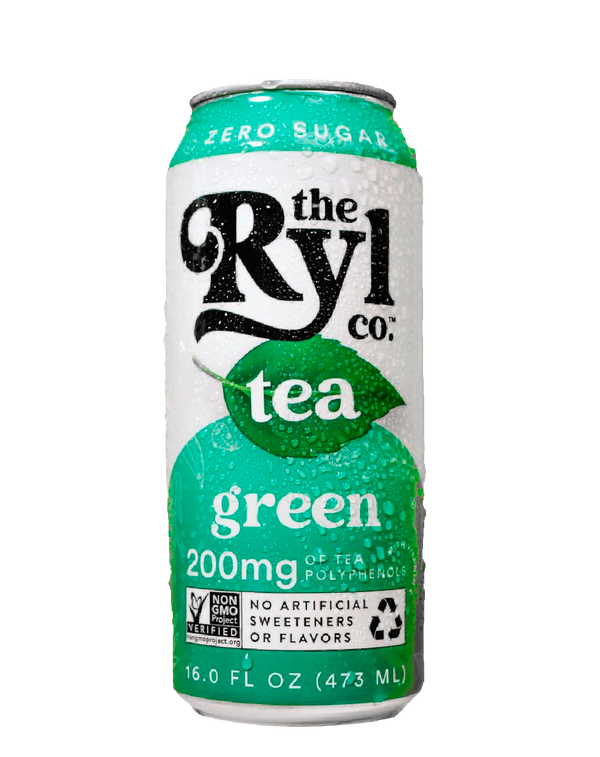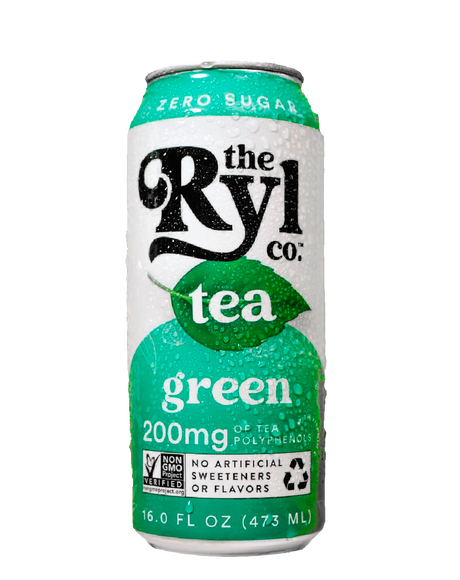-
-

-
What makes Ryl™ Tea different?
Our Ryl™ Polyphenol Technology. It’s our way of making sure that every can of Ryl™ Tea has a consistent 200mg of tea polyphenols
-



-
-
What are “Polyphenols”?
They are a diverse group of natural compounds found in many plant-based foods and beverages, and are known for their antioxidant properties
-

-
-
-
How About Tea Polyphenols?
They are apart of the broader polyphenol category but are specicially known for their subclasses: flavanoids and phenolic acids
-

-
Now, Why Is This Relevant?
Tea Polyphenols and Antioxidants Help Combat Free Radicals
What are Free Radicals and Why Should I Learn to Control Them?

-
Free radicals are highly reactive molecules that are formed through various processes and exposures of your everyday life. You are exposed to them through normal metabolic processes, exposure to pollution or radiation, and other factors like smoking or a poor diet.
-
When free radicals are maintained at a low/moderate level, they can play beneficial roles (ex. Cellular structure synthetization). But, when free radicals are overloaded in excess, they can create the phenomenon known as oxidative stress.
-
Oxidative Stress is when Free Radical load begins to cause damage to different cellular components by oxidizing them, and this oxidative damage can disrupt normal cell function and contribute to various diseases: including cardiovascular disease, cancer, neurodegenerative disorders, etc.
Where Do Tea Polyphenols Come Into Play?
Tea polyphenols, such as catechins and flavonols, have been extensively studied for their antioxidant activity and ability to scavenge free radicals. They can directly neutralize free radicals by donating an electron or hydrogen atom, thereby stabilizing the radicals and preventing them from causing damage to cellular components.
Several studies have demonstrated the free radical scavenging properties of tea polyphenols:
Khan, N., & Mukhtar, H. (2013). Tea polyphenols for health promotion
Sang, S., Lambert, J. D., Ho, C. T., & Yang, C. S. (2011). The chemistry and biotransformation of tea constituents.
Cabrera, C., Artacho, R., & Giménez, R. (2006). Beneficial effects of green tea—a review.
These studies highlight the ability of tea polyphenols to scavenge and neutralize free radicals, thereby protecting cells and tissues from oxidative damage. However, it's important to note that the antioxidant activity of tea polyphenols can vary depending on factors such as tea type, processing, brewing methods, and individual differences in metabolism and absorption.
The Ryl™ Tea Promise
Our proprietary tea blend (tea leaves and pure tea extract) was designed to ensure that every Ryl Tea can has 200mg of tea polyphenols (with specific catechin profiles depending on the flavor).
We ensure that everything we add to each can is consistent each time and qualify our finished good levels with an accredited 3rd party lab right after every production.
Sign up to our newsletter
Receive special offers and first look at new products.



